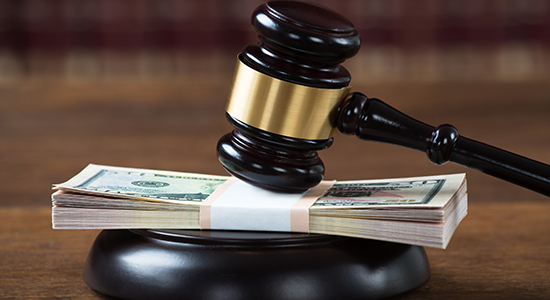
In a prior blog post1, I discussed the Wisconsin Court of Appeals’ decision in Estate of Miller v. Storey.2
Estate of Miller is a small claims case involving a statutory theft claim under Wis. Stat. section 943.20, in which the court of appeals ruled that the phrase “all costs of … litigation” recoverable for statutory theft claims under Wis. Stat. section 943.20 and Wis. Stat. section 895.446(3)(b) does not include actual reasonable attorney fees.
Although the case at issue did not involve theft by contractor, the court of appeals’ ruling is notable, because it is at odds with many construction lawyers’ understanding that a party that brings a successful theft by contractor claim under Wis. Stat. section 779.02(5) is entitled to recover attorney fees under section 895.446, a related damages statute (which applies to both theft by contractor and statutory theft claims).
The Wisconsin Supreme Court recently reversed the court of appeals, and confirmed that a plaintiff who prevails on a theft by contractor claim under section 779.02(5) may recover attorney fees pursuant to the damages remedy found in section 895.446(3)(b).3
Supreme Court Opinion
The supreme court held that attorney fees are included within the meaning of “costs of investigation and litigation” under section 895.446(3)(b).4
According to the opinion, a prior judicial interpretation by the court of appeals, Stathus v. Horst5 has long stood for that proposition.6 Moreover, the Legislature, despite taking other, subsequent action in that very statute, has not legislated so as to alter that interpretation.7
Therefore, the supreme court determined that the Stathus court’s interpretation that attorney fees are included as “costs of ... litigation” stands as good law.8
The supreme court concluded that the legislative history supported its ruling:
We note also that this interpretation is consonant with the instructions given in the legislative drafting file for the act creating the statute, which describes the purpose as allowing ‘a person who wins a civil action to receive treble damages and costs for certain property crimes. This includes all reasonable attorney fees and other costs of investigation and litigation. …’)9
Additionally, the supreme court found that the itemization of “attorney fees” as “costs” in section 799.25 (applicable to small claims) and the private attorney general doctrine supported the conclusion that attorney fees were recoverable here.10
The supreme court remanded the case to the circuit court to award reasonable attorney fees consistent with its opinion.11
Dissent
Justice Daniel Kelly wrote a strongly-worded dissent, in which Justice Rebecca Bradley joined. Justice Shirley Abrahamson joined the part of the dissent concerning the attorneys’ fees issue. Interestingly, this means liberal-leaning Justice Ann Walsh Bradley sided with conservative-leaning justices (Justice Annette Ziegler, Justice Michael Gableman, and Chief Justice Patricia Roggensack) to make the attorneys’ fee issue a 4-3 opinion.
The dissent argues that Stathus v. Horst does not address the issue of whether attorney fees are recoverable. The dissent further contends that the majority applied flawed statutory interpretation and improper policy arguments in reaching its opinion.12
The Question Settled
For now, the supreme court’s opinion settles – and answers in the affirmative – the question of whether attorney fees are recoverable by a successful statutory theft by contractor claimant.
This article was originally published on the State Bar of Wisconsin’s Construction and Public Contract Law Section Blog. Visit the State Bar sections or the Construction and Public Contract Law Section web pages to learn more about the benefits of section membership.
Endnotes
1 Supreme Court's Decision on Whether Attorney Fees are Recoverable Will Impact Theft by Contractor Cases, State Bar of Wisconsin Construction Blog, April 28, 2017
2 2016 WI App 68, 371 Wis. 2d 669, 885 N.W.2d 787.
3 Estate of Miller v. Storey, 2017 WI 99, ___ Wis. 2d ___, 903 N.W.2d 759.
4 Estate of Miller v. Storey, 2017 WI 99, ¶ 6.
5 2003 WI App 28, 260 Wis. 2d 166, 659 N.W.2d 165.
6 Id.
7 Id.
8 Id. ¶ 52.
9 Id. ¶ 21 n.23.
10 Id. ¶ 60.
11 Id. ¶ 62.
12 Id. ¶ 112.
